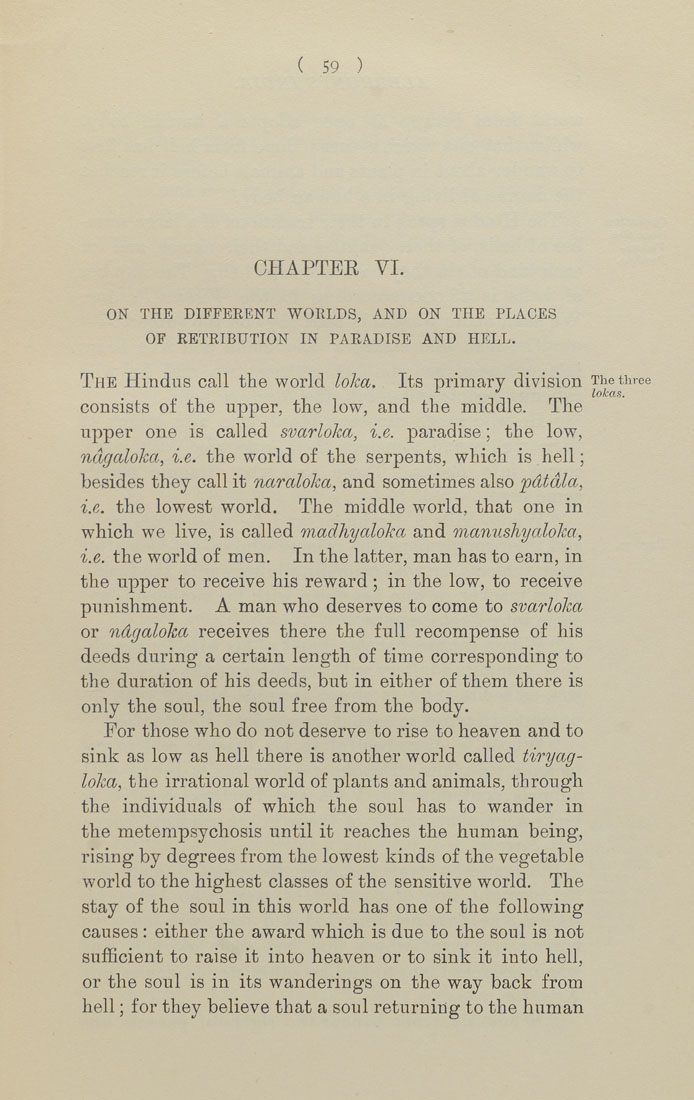Bīrūnī, Muḥammad ibn Aḥmad, Alberuni's India (v. 1)
(London : Kegan Paul, Trench, Trübner & Co., 1910.)
|
||
|
|
|
|
| Page 59 |

( 59 ) CHAPTER VI. ON the different worlds, and on the places OF retribution in paradise and hell. The Hindus call the world loka. Its primary division The three consists of the upper, the low, and the middle. The upper one is called svarloka, i.e. paradise; the low, ndgaloka, i.e. the world of the serpents, which is hell; besides they call it naraloka, and sometimes also pdtdla, i.e. the lowest world. The middle world, that one in which we live, is called madhycdoka and manushyaloka, i.e. the world of men. In the latter, man has to earn, in the upper to receive his reward; in the low, to receive punishment. A man who deserves to come to svarloka or ndgaloka receives there the full recompense of his deeds during a certain length of time corresponding to the duration of his deeds, but in either of them there is only the soul, the soul free from the body. For those who do not deserve to rise to heaven and to sink as low as hell there is another world called th-yag- loka, the irrational world of plants and animals, through the individuals of which the soul has to wander in the metempsychosis until it reaches the human being, rising by degrees from the lowest kinds of the vegetable world to the highest classes of the sensitive world. The stay of the soul in this world has one of the following causes: either the award which is due to the soul is not sufficient to raise it into heaven or to sink it into hell, or the soul is in its wanderings on the way back from hell; for they believe that a soul returning to the human |
| Page 59 |







